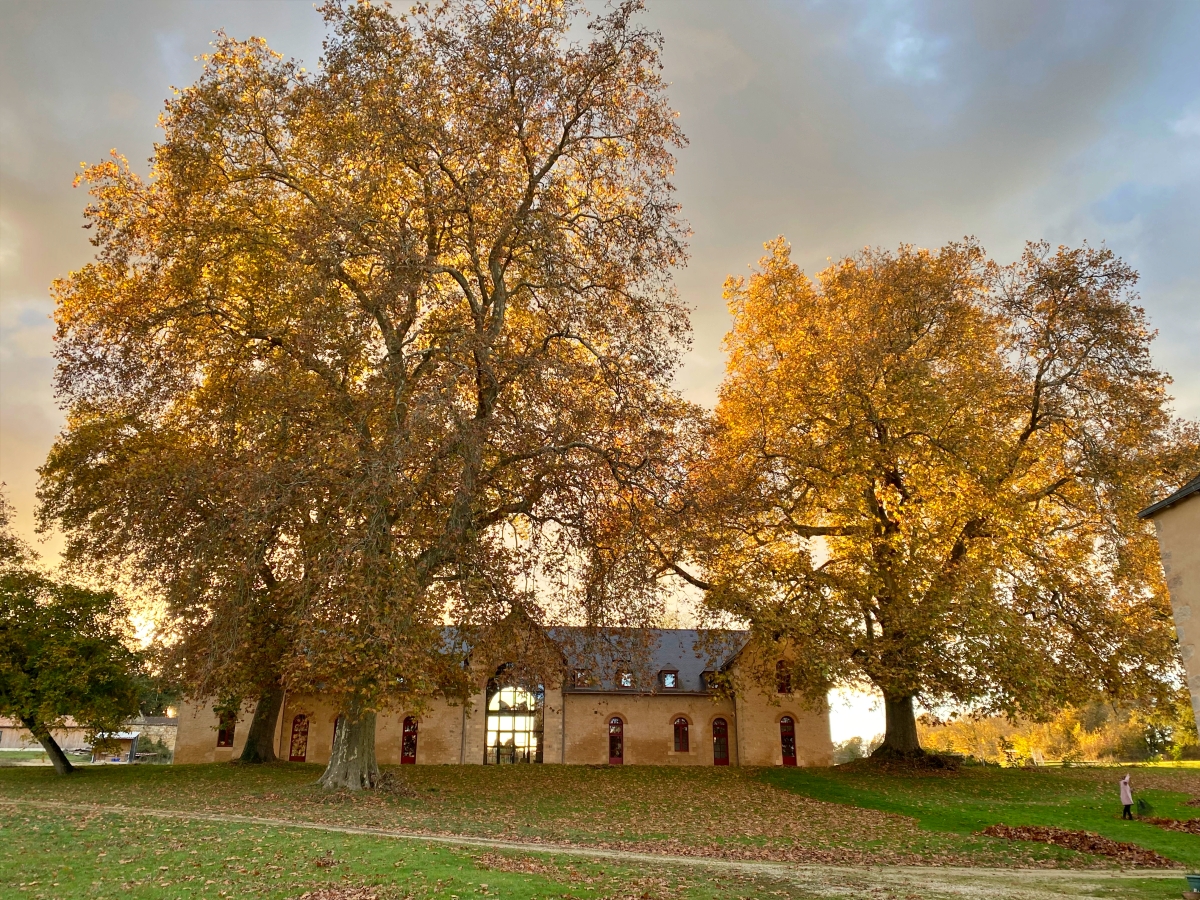I have been back home in Bonnevaux for a few days now, happy to re-enter the rhythm of prayer and community after the meeting-rush of COP26, busy but in a different way. Reading the news about COP in the light of the time I spent there, I am struck, not for the first time, how different first-hand experience is from the way it is headlined in the media. Of course, the media is a broad term: the Sun or FoxNews on one side and the Economist or BBC on the other, with the Tablet in its own orbit. Yet all journalism is about catching your eye; and headlines, by their nature, bend the truth in order to do so.
The headlines about COP now are generally pessimistic and angry. It’s all a terrible ‘failure’. Who’s to blame? Everyone, it seems, except the people pointing the finger at eyes which perhaps only have splinters in them. To my surprise, my sense of hope increased by being there. Although I wasn’t sitting with the negotiators, I did speak to some. They seemed to me realistic but also determined with that quality of resilience you find in effective peace-makers anywhere. Failure or success are relative, fluid terms and often too visceral to allow for subtlety. Nevertheless, evaluation is necessary and it’s not enough just to say, ‘in the long run it will look different’. As a famous economist once said when he was arguing against opposition for immediate change, ‘in the long run we will all be dead’.
I am not defending the defenders but questioning the attackers. One person over the last two years who has done much to ensure a good outcome and who will have a place in the history books, if there is still history, shared with me a sense of pessimism that clung to him. Was it too late? But he was not surrendering to it. He exemplified the alliance of ‘a pessimism of the intellect and an optimism of the will’. Holding them together is like keeping both hands on the wheel while driving through a rainstorm.
I listened to a presentation at a booth one day which floored me from the first sentence. It began with a frontal attack on the ‘them’ who had ‘excluded young people’ from the conference. It was delivered with the kind of tone you had either to applaud or be accused by. When the tone got too shrill I moved away. Not because the speaker may not have been right. Perhaps there should have been more young people allowed in, even though tickets were very hard to get. I left because the tone and anger seemed self-indulgent, hiding what might in fact have been a good case.
By contrast, in the last session I attended in the plenary hall, a much cooler mood prevailed in a discussion of the difficulty of spending the 130 trillion of pledged green. The head of one of the world’s biggest financial companies spoke with his new fervour of conversion to the cause. I couldn’t trust everything I heard because my knowledge was too limited. But I knew one or two people I do trust who could advise me. As with the science of the pro/anti vaccination issue, or the question of who God is, in the end it comes down to what or who you trust.
This extremely complex campaign to save the planet from man-made disaster feels like a battle. Tolstoy’s philosophy of history rejected the list of rational causes and strategic outcomes that he said are invented after the event. He believed battles were sheer chaos and their outcomes were the result of a hundred million diverse causes and unforeseeable circumstances. No model can account for the unpredictable complexity of people’s feelings, rivalries, self-importance, stupidity or just the weather or a chance technical fault.
This is a pessimistic view. Unchallenged, it might lead to the dehumanising of people by incremental authoritarian control. China is fulfilling Orwell’s prophecy in ‘1984’. Or, it leads to the withdrawal of alienated young people who feel unable to trust the leaders of their parents’ generation. Or, it leads to the demolition of democracy, the disabling of truthful conversation and the corruption of standards in public life. To offset these dangers, the intellect (or ‘will’ as a medieval theologian would have called it) must maintain optimism alongside pessimism. Few individuals can do this for long. The common mind needs to be built across all factions. In the meantime, the campaign to reverse global warming will no doubt continue to be turbulent and emotive.
Spiritual wisdom traditions and religious leaders might help to stabilise this and create a space for listening and de-polarising. What a pity Pope Francis and the Dalai Lama could not have been in Glasgow together. As the delegates enter their intense and exhausting second week, there is still no actual contemplative space for them to be, to meet and renew. There are seminar-rooms, bars, restaurants and lonely hotel rooms. On behalf of our group, I wrote to the Cabinet Office in Downing Street suggesting that as at past COP’s such a contemplative space would be very useful. I did get a polite reply to say they had considered this early on in the planning but decided against it. Let’s hope this wasn’t one of Tolstoy’s small ‘diverse causes’ that made the difference between success and failure.






